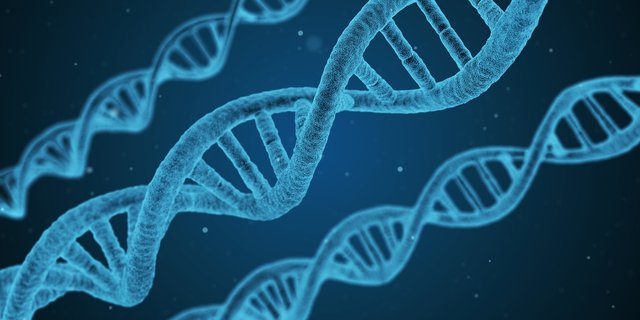The biochemistry of ageing
Introduction
Ageing

[image source: pixabay CCO licensed]
Mechanism involve in ageing
Free radical theory
DNA damage hypothesis
Telomere theory
Mitochondrial theory
Wear and tear theory
Immunological theory
Endocrine theory
This theory proposes that the decrease in activity of the hypothalamus - pituitary gland - endocrine system which is responsible for the regulation of the body's metabolism and other processes through the secretion of hormones is responsible for ageing process. This theory was backed by a research carried out by Powers et. al., (2006). In the research, the pituitary gland of lab mice were removed using hypophysectomy, and it was discovered that mice without pituitary hormone had extended life span compared to the control. This gave birth to the theory that the pituitary gland produces pituitary hormone alongside an unknown hormone that contributes towards ageing process.
Natural ways to slowdown the process of ageing
In view of the above theories and research which is yet to solve ageing process, it is advisable for us to watch the kinds of diet and activities we do, as this may contribute directly or indirectly towards ageing. Lets discuss ways by which we can slow down this process naturally
Diet : Looking at ancient people, they have higher life span compared to people of nowadays. This is as a result of their nutritional diet, they eat more of natural foods and not junks. Since we already know the negative effects caused by free radicals, eating foods that are rich in anti oxidants cannot be emphasized enough. Vegetables, protein, red whine, fruits such as berries and watermelon are very effective in slowing down the process of ageing because of the presence of antioxidants in them. Inflammatory foods such as junk foods should be avoided because of their negative effects which directly or indirectly accelerates ageing process. Foods such as whole grain contains fibre, carbohydrate, protein and essential fatty acid that helps in reducing cholesterol levels in the body should be consumed more. On the other hand, wines, vegetables and fruits are good source of flavoniods, carotenoid and vitamins that helps in preventing cellular damages caused by the activities of free radicals.
Exercise : Various research has been carried out and they support the motion that regular exercise helps attenuate the process of ageing. From the molecular view in a research carried out by Cash et. al., (2013), it was concluded that moderate exercise helps in the repair of damaged DNA. Damaged DNA contributes to ageing as discussed above in DNA damage hypothesis.
Nutritional requirement for the aged
The aged are refered to people who have attained the age of 60 and above. Not all kinds of food is healthy to the aged, so extra effort has to be made to help them stay healthy as discussed bellow
Fats: The presence of fat should be greatly reduced in diets of the aged. Reduction of fats in their diet helps reduce calorie intake and reduction of heart related disease such as atherosclerosis. Only fats that contains essential fatty acids and fat soluble vitamins should be included in their diet. Good source of these type of fat are olive oil and canola oil.
Calories : The intake of calories needs to be reduced due to the decrease in cells metabolism and decrease in muscular activities. Although, individuals varies but the calorie intake required daily for the aged should not be more than 1,600 kcal.
Fibre : Fibres are well known for the prevention of colon cancer and aid easy emptying of the bowel. It also helps in binding to blood cholesterol and carries it out of the body, thereby preventing heart related diseases such as atherosclerosis.
Vitamin and minerals : The defiency of vitamins and minerals is noticeable in the aged people. Extra efforts has to be made to provide them with essential vitamins such as Vitamin C, E and B. Minerals such as iron and calcium are relatively low in aged people which results in fatigue. Fresh fruits and vegetables should be mostly eaten by the aged as they contain most of the essential vitamins and minerals.
Carbohydrate : Complex carbohydrates should mostly be taken by the aged people. Carbonated drinks should be avoided as they contain very high amount of sugar that may result in pile and hyperglycaemia.
Protein : The need for essential amino acid is same for the young and aged people. Aged people should avoid beef and egg as their source of protein because egg yolk is rich in cholesterol, while beef contains essential nucleic acid which when metabolize, results in the accumulation of uric acids in joints that causes arthritis. Plants protein should be the source of protein for the aged because they contain biomolecules capable of preventing and minimizing diseases associated with ageing.
Conclusion
From all the discussed theories above, it is clearly seen that the process of ageing does not involve an individual process but a multiple complex process. Regulating our diet and regularly exercising will help reduce the process of ageing, making us active and young even at old age.
References
Mc Auley M.T., Guimera A.M., Hodgson D., Mcdonald N., Mooney K.M., Morgan A.E., Proctor C.J., (2017). Modelling the molecular mechanisms of aging. Biosci Rep. 28; 37(1). https://www.ncbi.nlm.nih.gov/pmc/articles/PMC5322748/
Cash, S. W., Beresford, S. A. A., Vaughan, T. L., Heagerty, P. J., Bernstein, L., White, E., & Neuhouser, M. L. (2014). Recent physical activity in relation to DNA damage and repair using the comet assay. Journal of Physical Activity & Health, 11(4), 770–776. http://doi.org/10.1123/jpah.2012-0278
Rebelo-Marques, A., De Sousa Lages, A., Andrade, R., Ribeiro, C. F., Mota-Pinto, A., Carrilho, F., & Espregueira-Mendes, J. (2018). Aging Hallmarks: The Benefits of Physical Exercise. Frontiers in Endocrinology, 9, 258. http://doi.org/10.3389/fendo.2018.00258
Powers R.W., Harrison D.E., Flurkey K., (2006). Pituitary removal in adult mice increases life span. Mech Ageing Dev.127(8):658-9. https://www.ncbi.nlm.nih.gov/m/pubmed/16643985/#
Jin, K. (2010). Modern Biological Theories of Aging. Aging and Disease, 1(2), 72–74. https://www.ncbi.nlm.nih.gov/pmc/articles/PMC2995895/#b2-ad-1-2-72
Park, D. C., & Yeo, S. G. (2013). Aging. Korean Journal of Audiology, 17(2), 39–44. http://doi.org/10.7874/kja.2013.17.2.39



I wouldn't call ageing diseases, I would prefer the ultimate end-game. Can you imagine if immortality is a thing how occupied this world would be? We would have to colonise another planet in order to meet the ever-increasing demand of all the immortals; I would say, in some ways, ageing is a blessing in disguise.
Explaining theories can be tricky especially for laymen or people from other disciplines so be sure to use, as much as possible, laymen's term for the benefit of other readers.
I found this statement quite disturbing. First of all, how did all of the food classes mentioned reduce cholesterol? Second of all, why do we want to reduce cholesterol? According to research and other clinicians perspective, people who were always sick usually had a low cholesterol level compared to someone with moderate or high cholesterol. Cholesterol is an essential component of the cellular membrane.
I know people usually blame cholesterol for the formation of the atherosclerotic plaque but cholesterol was actually one of the mediators to seal the microtear in the vessel cause my inflammation. The most important thing is to reduce the inflammation then, not cholesterol.
If you are familiar with sugar and its destructive capacity, you would know diet with high carbohydrates and low fibre can increase the level of reactive oxygen species commonly seen in people with diabetes. You might want to do some reading regarding how the polyol pathway increases the substrate required to synthesize ROS.
Concerning cholesterol, isn't some of them good and some of them bad as well. At least, this is what I vaguely remember. As a consequence, should we really try to reduce all cholesterols blindly? I don't think so :)
You are correct, there are different types of cholesterol but the low density lipoprotein (LDL) which is also referred to as bad cholesterol is what this post talks is about. The body already produces enough cholesterol required by the body daily, so increased cholesterol through diet should be reduced. The body will always produce more when needed.
Sorry for the misunderstanding caused by omittion of some terms :)
Thanks for clarifying :)
Hey @chloroform
Here's a tip for your valuable feedback! @Utopian-io loves and incentivises informative comments.
Contributing on Utopian
Learn how to contribute on our website.
Want to chat? Join us on Discord https://discord.gg/h52nFrV.
Vote for Utopian Witness!
Seeing ageing as the ending is a wonderful opinion which is supported by many, also defining ageing as a disease is also an opinion accept by many as seen in this article https://www.ncbi.nlm.nih.gov/pmc/articles/PMC4471741/
Soluble Fibre is known for binding to cholesterol and taking it out of the body. https://www.ncbi.nlm.nih.gov/m/pubmed/18937894/
Low carbohydrate diet such as whole grain as discussed above also plays a role in the reduction of cholesterol levels in the body. https://www.ncbi.nlm.nih.gov/pmc/articles/PMC3530364/.
Plants protein are well-known for helping in the reduction of cholesterol as seen here https://www.ncbi.nlm.nih.gov/m/pubmed/3097105/
Omega 3 fatty acids which is an essential fatty acids helps in reducing cholesterol levels as seen here https://www.ncbi.nlm.nih.gov/pmc/articles/PMC5691715/
Yes, cholesterol is very essential for the body because it is required for the production of hormones and other substances for proper functioning of the body. The body is capable of producing 80% the amount of cholesterol required by the body, so increasing the level of cholesterol through diet increases the risk of cardiovascular disease because, we take in both LDL and HDL. As mentioned by @lemouth , there are different types of cholesterol and the low density lipoprotein (LDL) also referred to as bad cholesterol is what i am pointing at in this post.
This is why consuming of complex carbohydrates such as whole grain is advised as mentioned above because, they take longer time to be broken down thus preventing the easy uptake of glucose by the intestine.
Am so sorry for not giving detailed explanation as i omitted some terms. Thanks for your wonderful comment, questions and observation
DISCLAIMER: dropahead Curation Team does not necessarily share opinions expressed in this article, but find author's effort and/or contribution deserves better reward and visibility.
(maximize your curation rewards!)
with SteemConnect
12.5SP, 25SP, 50SP, 100SP, 250SP, 500SP, 1000SP
Do the above and we'll have more STEEM POWER to give YOU bigger rewards next time!
Are you a curator? Join our team! v1
Releasing the power of dropahead's Rewards Pool (dRP)
This is a good summary of what we know about aging. I like that you concluded it is not one mechanism but all of them decaying slowly. Good post overall.
Thank you so much for your taking your time to read and for your wonderful comment
Funnily enough, I learned the existence of a few of them on Steem :D
Wow, sounds amazing
This post has been voted on by the steemstem curation team and voting trail.
There is more to SteemSTEM than just writing posts, check here for some more tips on being a community member. You can also join our discord here to get to know the rest of the community!
@donefezy, very interesting article.
Posted using Partiko Android
Thanks @cryptospa, it's a pleasure having you come by ☺
@donefezy, I always read your articles about health issues. They are very intersting and informative. Keep on doing the good job!
Posted using Partiko Android
Congratulations your post has been featured on the Stach Post Review Article.
Thanks for using the Stach Tag.
Keep Being Creative!.
Courtesy-Stach Curation team
Hi @donefezy!
Your post was upvoted by utopian.io in cooperation with steemstem - supporting knowledge, innovation and technological advancement on the Steem Blockchain.
Contribute to Open Source with utopian.io
Learn how to contribute on our website and join the new open source economy.
Want to chat? Join the Utopian Community on Discord https://discord.gg/h52nFrV
Aging is not a disease in my opinion
Without aging, kids would remain kids forever and technological evolution might not surface
Nice opinion buddy, i just wanted to include that the ageing process begins when we've reach development and growth max. Thanks for your wonderful contribution
Thanks for using the girlsfoundation tag as one of your tags. Don't forget to follow @girlsfoundation.
you can also support the girlsfoundation by following our curation trail using steemauto